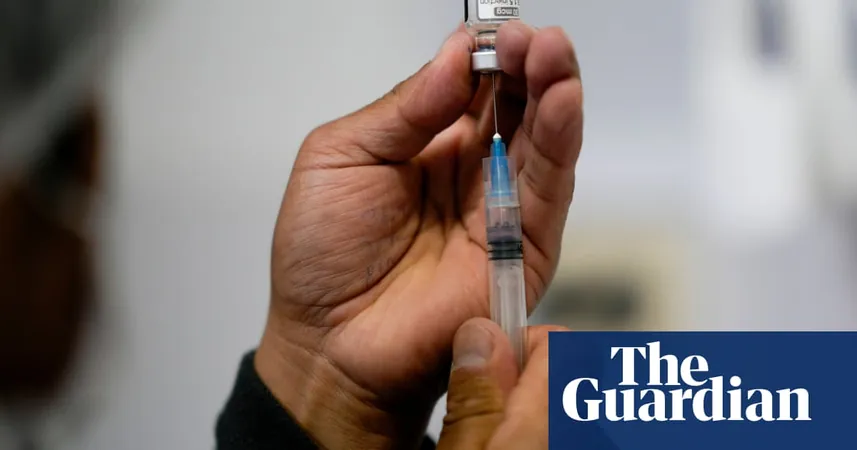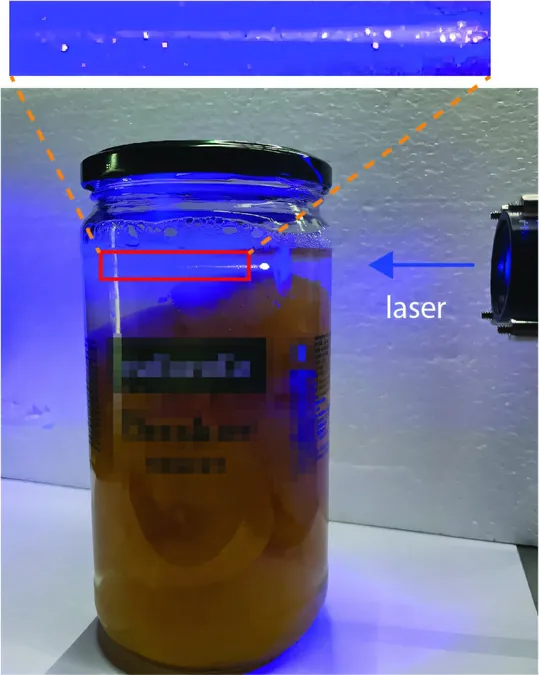
Serious Delays and Inadequacies in Support for Covid Vaccine Injury Victims Revealed in Inquiry
2025-01-15
Author: Nur
Serious Delays and Inadequacies in Support for Covid Vaccine Injury Victims Revealed in Inquiry
People severely affected by Covid vaccines are facing a challenging and frustratingly inadequate process for obtaining financial compensation, according to testimonies presented during the recent Covid inquiry. As victims share their harrowing experiences, alarming concerns about the fairness and efficiency of the vaccine damage payment scheme have surfaced.
The scheme, designed to provide a one-time payment of £120,000 to individuals who experience serious adverse reactions that render them at least 60% disabled, has been criticized by those impacted. Kate Scott, a representative from Vaccine Injured and Bereaved UK, expressed that the scheme falls woefully short, stating, “It offers too little, too late, to too few.” She emphasized the need for a comprehensive compensation program, mentioning that the government should have anticipated potential injuries and fatalities given that no medical intervention is entirely risk-free.
One poignant testimony came from Scott herself, whose husband, Jamie, suffered a rare brain blood clot following the AstraZeneca vaccine. Though he survived a month-long coma, he now faces partial blindness and cognitive difficulties, preventing him from returning to work. While Jamie did receive a vaccine damage payment, Scott highlighted the inadequacy of the compensation, noting that many individuals in the same situation are resorting to food banks and even relocating due to financial strain.
Moreover, the inquiry disclosed that numerous applicants have been denied payments due to not meeting the 60% disability threshold. As of November 30, there were 17,519 claims filed, with over 1,000 individuals still waiting for a resolution after more than a year, and 126 enduring the wait for nearly three years.
In addition to reforming the vaccine damage payment scheme, Scott urged that medical professionals and the public should have been made aware of potential serious side effects earlier, which could have led to better treatment outcomes.
The inquiry's latest proceedings are concentrating on the vaccine rollout, often viewed as a success in the UK’s pandemic response. Despite the criticism concerning claims processing, evidence presented by Hugo Keith, KC, counsel to the inquiry, highlighted the UK’s robust system for ensuring vaccine safety. He stated that the evidence suggests the vaccines have overwhelmingly protected the public from the deadly virus responsible for numerous fatalities.
Keith acknowledged that while serious side effects are rare, they can be devastating for the individuals affected and their families. He cautioned against using these rare instances to undermine the critical role vaccines play in public health.
Responding to concerns, a spokesperson for the NHS Business Services Authority indicated that since taking over the management of the vaccine damage payment scheme in November 2021, efforts have been made to expedite claims processing. However, significant delays remain due to healthcare providers taking time to submit medical records, crucial for progressing claims to the assessment stage.
As discussions continue, the need for accountability and support for those affected by vaccine injuries remains a pressing issue, with advocates calling for a more compassionate and effective response from the government. Can the system be improved to ensure that no one is left behind in this public health crisis? Only time will tell.



 Brasil (PT)
Brasil (PT)
 Canada (EN)
Canada (EN)
 Chile (ES)
Chile (ES)
 Česko (CS)
Česko (CS)
 대한민국 (KO)
대한민국 (KO)
 España (ES)
España (ES)
 France (FR)
France (FR)
 Hong Kong (EN)
Hong Kong (EN)
 Italia (IT)
Italia (IT)
 日本 (JA)
日本 (JA)
 Magyarország (HU)
Magyarország (HU)
 Norge (NO)
Norge (NO)
 Polska (PL)
Polska (PL)
 Schweiz (DE)
Schweiz (DE)
 Singapore (EN)
Singapore (EN)
 Sverige (SV)
Sverige (SV)
 Suomi (FI)
Suomi (FI)
 Türkiye (TR)
Türkiye (TR)
 الإمارات العربية المتحدة (AR)
الإمارات العربية المتحدة (AR)